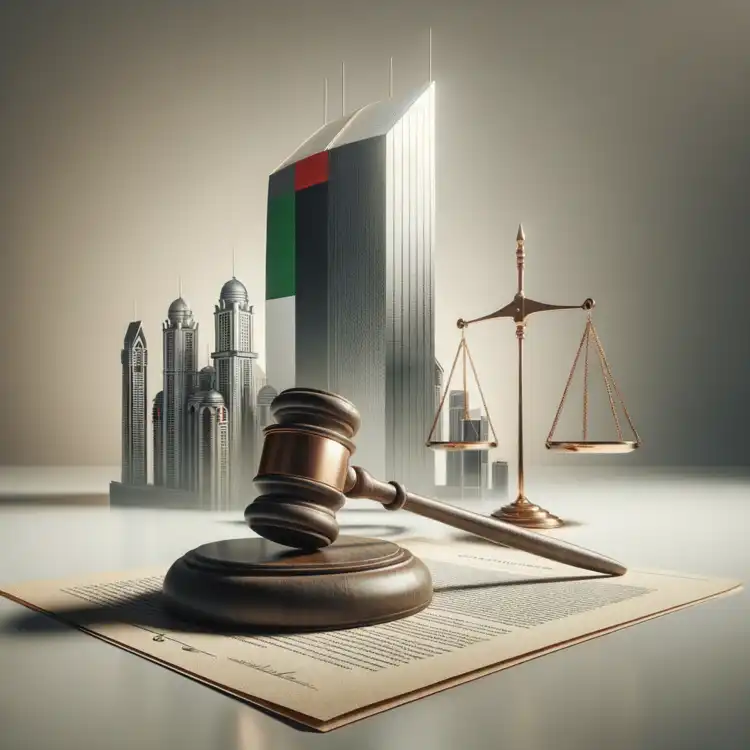Legal Reforms
- Updating sentencing guidelines
- Improving procedural rights
- Enhancing public access to legal information
2025-04-21
Highlighting the significant aspects and necessary reforms in the UAE judicial system.
Adoption of international best practices
Collaboration with foreign legal entities
Training programs for legal professionals
High-profile criminal cases in the UAE often capture public attention due to their complex nature and significant implications. These cases typically involve prominent individuals or crucial issues that resonate with society. Understanding what defines these cases is essential for grasping their broader impact on the legal landscape in the UAE.
At UAE Court Watch, we believe that high-profile cases are not only about the individuals involved but also about how they reflect the judicial system's integrity and responsiveness. As a legal analyst, I've seen firsthand how these cases can shape public perception and influence legal reforms. Let’s explore what makes these cases significant.
What exactly qualifies a case as high-profile? Generally, it includes elements such as the visibility of individuals involved, the nature of the crime, and the societal implications. High-profile cases can range from international drug trafficking to corruption scandals that attract media coverage and public scrutiny. Understanding the role of a criminal defense lawyer is also crucial in navigating these complex legal situations.
The significance of these cases lies not only in their outcomes but also in how they can lead to shifts in public opinion and legal practices. For example, a notorious case might prompt discussions about the adequacy of current laws or highlight the need for better judicial resources.
The UAE's judicial system is a unique blend of Islamic law and civil law principles, designed to address the diverse needs of its population. Understanding this framework is crucial when examining high-profile cases. The courts are divided into various levels, including local and federal courts, each with specific jurisdictions.
In high-profile cases, the interplay between these different court levels can significantly impact proceedings. For instance, a case that begins in a local court may escalate to federal courts if it raises constitutional questions or involves federal laws. At UAE Court Watch, we aim to provide insights into how these dynamics shape the outcomes of significant cases in the UAE.
When following high-profile criminal cases, pay attention to the media's role in shaping public perception. Analyzing how different outlets report on these cases can provide insights into potential biases and influence on judicial outcomes. Always consider multiple perspectives to gain a well-rounded understanding of the situation.
High-profile criminal cases in the UAE have a unique significance that extends beyond the courtroom. They serve as a lens through which we can examine the effectiveness of our judicial system and how it evolves in response to public scrutiny and legal challenges. As someone who closely follows these trends at UAE Court Watch, I see a clear need for continued legal reforms and transparency in our legal processes.
Before we proceed, let's address some frequently asked questions to clarify key aspects of high-profile criminal cases in the UAE:
These cases highlight the importance of maintaining a balance between justice and public interest. We must ensure that the legal landscape not only addresses the needs of today but also anticipates future complexities. Here are a few key insights worth reflecting on:
In light of high-profile cases, it's clear that our legal system must continually evolve. Reforms not only enhance the effectiveness of the judiciary but also foster public confidence. This is especially crucial in a rapidly changing society like ours.
With my experience in analyzing legal frameworks, I understand how critical it is to integrate reforms that focus on:
Transparency isn't just a buzzword; it’s a necessity in building trust between the judiciary and the public. By making the legal process more open, we empower individuals to take informed actions when facing legal challenges. For further insights, consider exploring civil litigation in Dubai, which often intersects with these high-profile cases.
As the UAE positions itself on the global stage, it becomes increasingly important to align our judicial practices with international standards. This alignment not only enhances our credibility but also facilitates smoother cooperation in cross-border legal matters. Understanding court rulings in Dubai is vital for grasping the practical implications of these standards.
In my observations, here are some ways global standards influence our legal landscape:
By embracing these changes, the UAE can strengthen its legal system and ensure that it meets both local needs and international expectations.
Your thoughts matter! As we navigate the complexities of high-profile criminal cases, I invite you to share your perspectives. How do you view the current state of our judicial system? Are there specific cases that have shaped your opinions? Engaging in dialogue can shed light on various aspects and foster a deeper understanding of the issues at hand.
Feel free to drop your questions or comments below. I'm here to discuss and explore the intricacies of the legal landscape together!
At UAE Court Watch, we are committed to keeping you informed about the latest legal developments. Our mission is to empower individuals and businesses by providing timely updates and insightful analyses of the judicial landscape.
Don't miss out on important updates! Subscribe to our newsletter or follow us on social media to stay abreast of significant legal changes and trends. Your engagement not only enriches our community but also enhances our collective understanding of the legal challenges we face. Let’s navigate the complexities of the UAE legal system together! To stay updated on specific instances, reviewing Dubai court case studies can provide valuable context.
Here is a quick recap of the important points discussed in the article:
